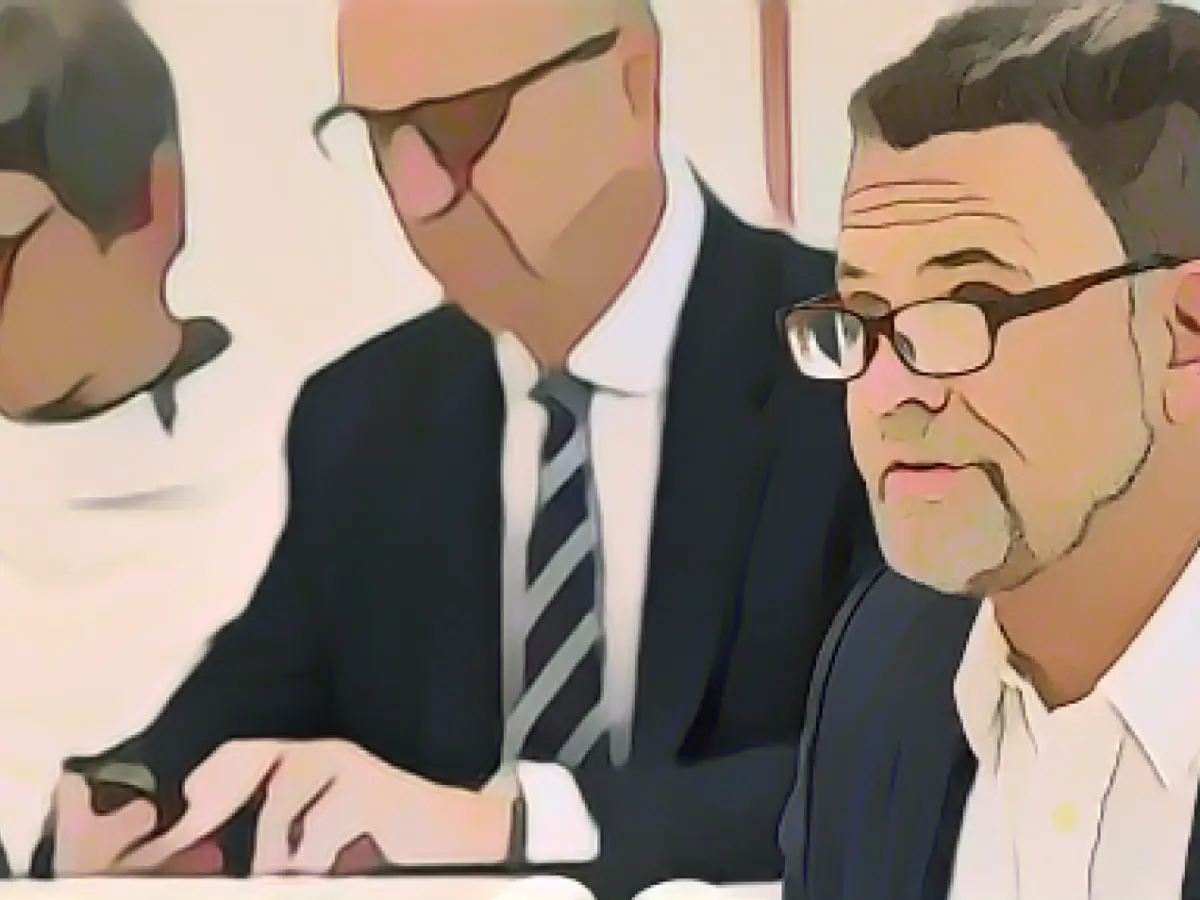Title: Controversial Political Figure Aims for Control Commission Role, Stirring Debate
In the tumultuous world of politics, Philip Zeschmann, the latest recruit to the AfD parliamentary group, has found himself in the middle of a storm. His ambition to join the watchdog commission scrutinizing the Office for the Protection of the Constitution in the Brandenburg State parliament has faced opposition, despite his commitment to viewing the AfD's parliamentary work as non-extremist.
The state parliament has yet to cast its vote on Zeschmann's candidacy, hindering the AfD group's plans to have a say in the control commission. The legal battle, however, escalates first at the constitutional court, as the judges' decision against the AfD parliamentary group prevents its members from being elected to the commission.
The AfD itself has grappled with scrutiny, with the Brandenburg Office for the Protection of the Constitution labeling the state association as a suspected extremist back in 2020. The party, on the other hand, maintains it serves the free democratic basic order and frequently refutes such accusations.
Zeschmann's stance on the AfD has become a point of contention, with criticism mounting when he dodged answering directly whether he aligned with the party or felt comfortable around Thuringia's party leader Björn Höcke. Skepticism and questions about his suitability for the watchdog commission persist.
At the parliamentary session, SPD MP Erik Stohn raised concerns regarding AfD parliamentary group leader Hans-Christoph Berndt's involvement in the Zukunft Heimat association. Previously, the Office for the Protection of the Constitution had identified the association as spreading racist, anti-Semitic, Islamophobic, and xenophobic ideologies during demonstrations, events, and online propaganda.
Zeschmann, co-founder of the Alliance for Democracy and Tolerance Schöneiche and a former SPD member, grappled with these issues of association and extremism. He asserted that he couldn't pass judgment on Berndt's role or the association themselves, revealing a chasm between accusations and his personal viewpoint.
The intricate dynamics of this situation shed light on how political loyalties and limitations can blur, giving rise to a series of debates that expose the nuances and divisions present in modern political landscapes.
Additional Insights:
- The ongoing legal tug-of-war surrounding Zeschmann's candidacy and the AfD's presence in the watchdog commission highlights the challenging balance of political inclusivity, extremism, and party representation in contemporary democratic societies.
- The AfD, although denying ties with extremist groups, has faced criticism for certain members' public remarks and actions deemed as promoting hate speech and xenophobia.
[1] "Germany's AfD party battles calls to split from extremist wing," Reuters, (Accessed: Sept 25, 2023).








